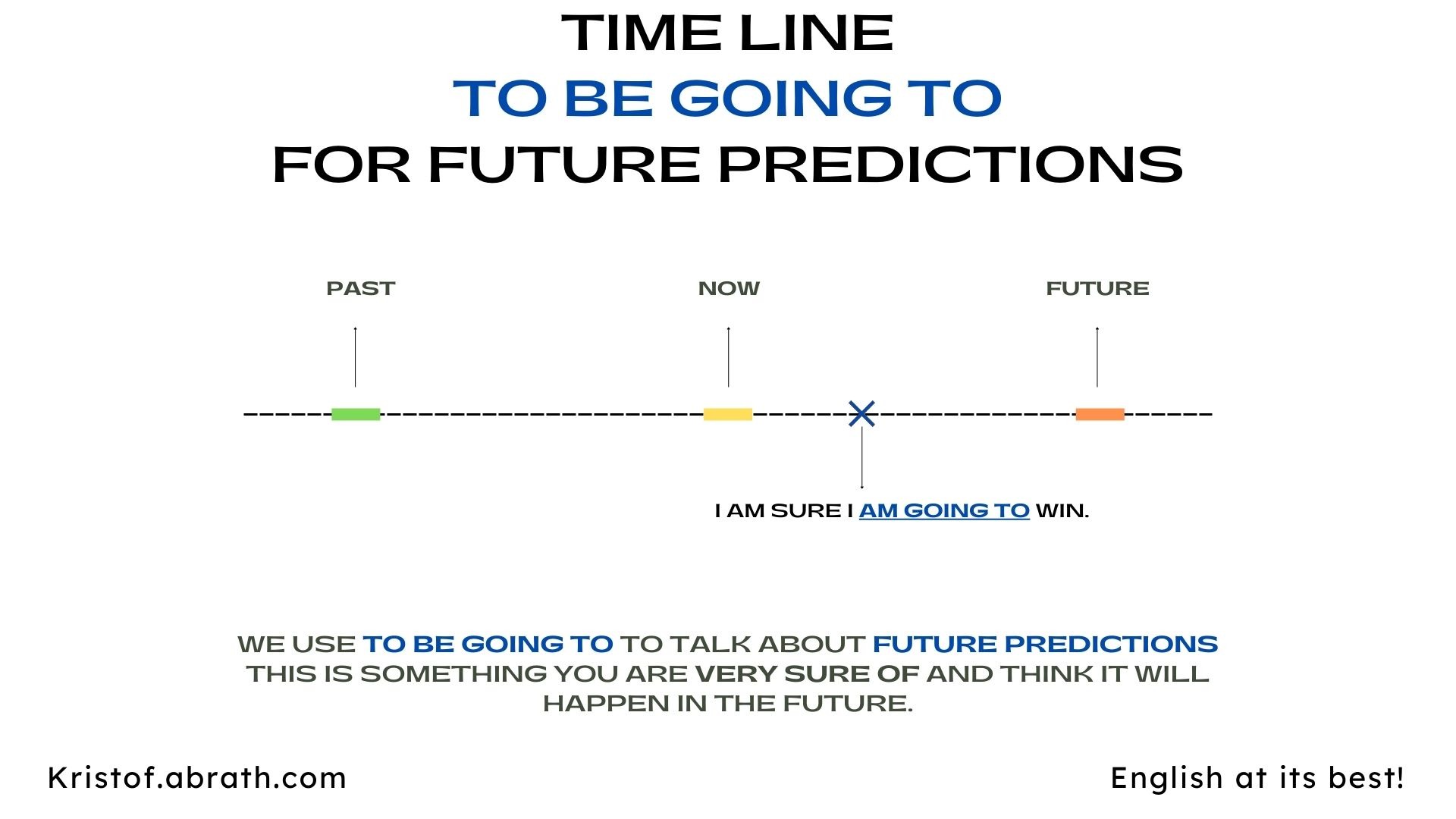To be going to
Future predictions

Table of Contents
Overview
In this grammar section we will have a look at the To be going to, to talk about future prediction
The video gives an overview of to be going to for future plans.
- It shows the form: how to construct to be going to positive, negative and question form and the exceptions. It also has a look at the placement of adverbs.
- It shows the meaning/usage: when and why to use to be going to
- It shows the pronunciation of to be going to: How you would pronounce different parts of to be going to.
Examples
A: Is he going to pass his exam?
B: No, he isn’t going to pass his exam, He’s going to fail.
Usage/ Meaning
How and when do we use to be going to?

To be going to is about future predictions.
- I’m going to pass my test.
- She isn’t going to like the present.
- Are we going to have a wonderful day?
These are predictions, things that you think will happen. They might not happen, but you are still very sure it is possible they will happen.
Form
How do we make, form, construct to be going to?
Positive
Examples
- It is going to fall.
Positive:
- I am going to fall
- You are going to fall
- he/she it is going to fall
- You are going to fall
- They are going to fall
- We are going to fall
I/You/ She/ He / It /They/We Subject + to be + going to + infinitive (without to)
Practice
Negative
Examples
- I am not going to win this afternoon.
Subject | To be | Going to | infinitive |
I | am not | going to | win |
you | are not | going to | win |
he/she/it | is not | going to | win |
you | are not | going to | win |
we | are not | going to | win |
they | are not | going to | win |
Subject | To be short form | Going to | infinitive |
I | ‘m not | going to | win |
you | aren’t | going to | win |
he/she/it | isn’t | going to | win |
you | aren’t | going to | win |
we | aren’t | going to | win |
they | aren’t | going to | win |
Practice
Question
Examples
- Are you going to pass the exam?
To be | Subject | Going to | infinitive |
Am | I | going to | pass |
Are | you | going to | pass |
Is | he/she/it | going to | pass |
Are | you | going to | pass |
Are | we | going to | pass |
Are | they | going to | pass |
Practice
Short answer
- Yes, I am
- Subject + am /is are/.
- No, I am not
- Subject + am not/ isn’t/ aren’t
- Subject + am not/ isn’t/ aren’t
Pronunciation
How do we pronounce different parts to be going to.
Normally when speaking and using To be going to in AmE (American English) you contract the form and the sound changes slightly.
We’re going to play football later. /gonna/
I’m not going to do it. /gonna/
Gonna is not a word you can write! It is just a representation of the sound you hear of the contraction between going and to.
Time words
Which time words/expressions and adverbs can you use with to be going to?
To be going to can use future time words
- It’s going to snow tomorrow.
- Are we going to win the match on Tuesday?
- They aren’t going to pass their exam this afternoon.
You can use tomorrow, next week, later, next year, in a few hours, this afternoon, Monday,…
There are also other time words and phrases and you can put them at the beginning or the end of your sentence.
Questions
Have a look at the questions and write your answers in the comments below. Also give us some more details about when, where, why,….
- Are you going to be famous one day?
- Are you going to be very rich one day?
- Who is going to win the next world cup?
- Is everyone going to work from home one day?
- Are we going to solve global warming?
- Are robots going to do all the work?
- Is there going to be another pandemic?
- Are we ever going to meet any aliens?
- Are we going to live forever?
- Are we going to cure every disease?
Spread the word
Kristof Abrath
Teacher, Trainer, Course Designer
Teaching in English on 4 different continents since 2006.



